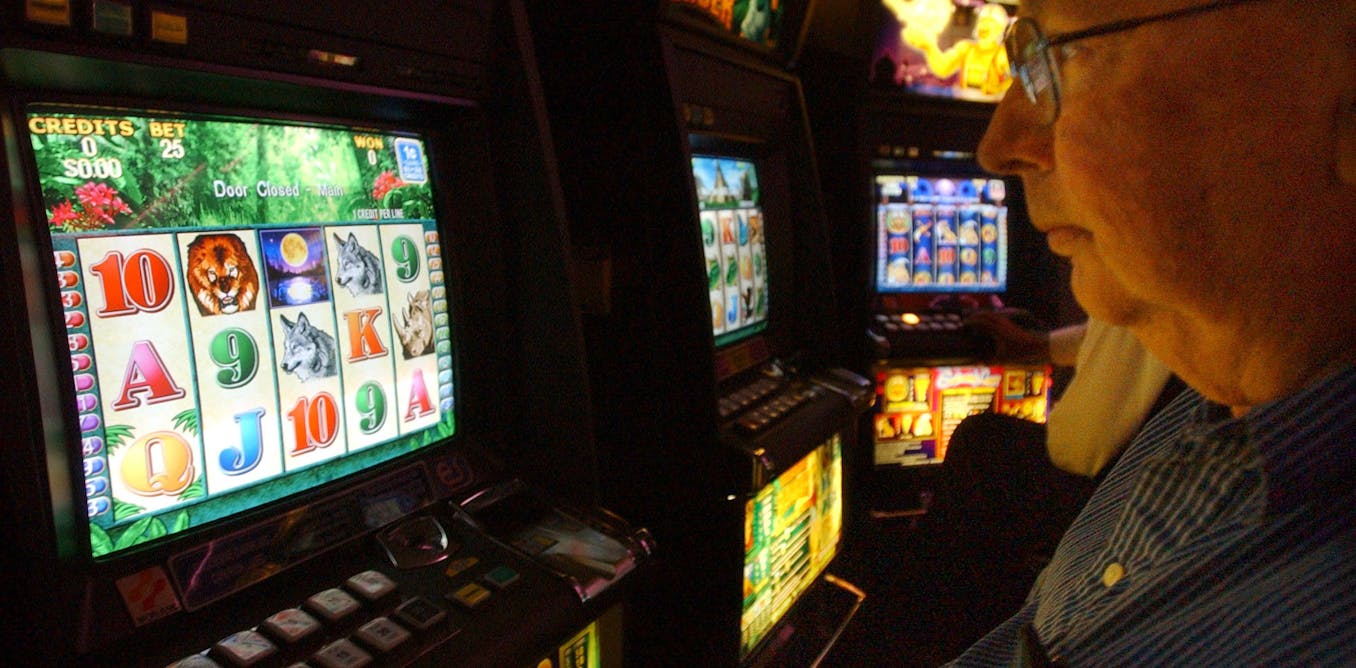Mandatory Pre-commitment On Poker Machines

Yes, it’s finally here. The Parliamentary Joint Select Committee on Gambling Reform this morning released their initial report covering “The design and implementation of a mandatory pre-commitment system for electronic gaming machines”. This is the committee that was set up following the ALP’s win at the last Federal election, and was chaired by Independent Andrew Wilkie.
Mandatory Pre-commitment On Poker Machines For Sale

Arizona tribes aren’t required to release information on their slot machine percentage paybacks, however, according to the Arizona Department of Gaming, the terms of the compact require each tribes’ machines to return the following minimum and maximum paybacks: video poker and video blackjack - 83% to 100%, slot machines - 80% to 100%, keno. The implementation of a mandatory precommitment system on electronic gaming machines—or poker machines—was a major recommendation of the Productivity Commission and is a key aspect of my own limited support for the government. Mandatory Pre-commitment Loss Limits Internet Casino. Introduced in January 2014. Loss limits: –Day, max $ 500 (4 000 NOK) –Week, max $ 870 (7 000 NOK) –Month, max $ 1200 (10 000 NOK). Time limits (mandatory). Pause (24 h, week, month and 90 days). Self exclude Norsk Tipping AS 11. . Existing Australian poker machines should be classified as high-intensity poker machines. Mandatory pre-commitment for high-intensity poker machines should be rolled out in pubs, clubs and casinos across Australia by 2014. Low-intensity poker machines should be made available for operation by pubs, clubs and casinos.

It’s been a long time coming, which is hardly surprising. 119 individual submissions (including my own) and eight public hearings makes for a lot of material to work through! But it has finally been released, and as expected there is no reference to a “licence to punt”. Actually, that’s not quite true; Senator Xenophon does refer to it briefly in his additional comments at the end of the report, but only to highlight the lies being put about by ClubsAustralia as part of their abortive pro-pokies campaign.
The report is available on the Australian Parliament’s website, and I urge you to take a look for yourself. In the short term, I have plucked out what I feel are the key recommendations… and they are:

• Existing Australian poker machines should be classified as high-intensity poker machines.
• Mandatory pre-commitment for high-intensity poker machines should be rolled out in pubs, clubs and casinos across Australia by 2014.
• Low-intensity poker machines should be made available for operation by pubs, clubs and casinos.
• Low-intensity poker machines have the following restrictions: $1 maximum bet, $20 maximum load-up and $500 maximum win.
• Low-intensity poker machines will NOT require pre-commitment to play.
• Existing high-intensity poker machines can be reconfigured to become low-intensity poker machines.
• Small gambling venues (with 15 or fewer poker machines) will have until 2018 to implement mandatory pre-commitment.
• A transitional fund should be established to assist smaller venues with the cost of compliance with mandatory pre-commitment regulations.
• An independent national body should be established to oversee mandatory pre-commitment issues and regulations.
• State and territorial jurisdiction over the number and distribution of poker machines will remain in place.
• The preferred solution for enforcing mandatory pre-commitment is a smartcard solution with basic identity requirements.
• The pre-commitment smartcard should have a default betting limit, which can be changed by the gambler who owns the card.
• Betting limits can be increased once every fortnight.
• Betting limits can be decreased once every 24 hours.
• The pre-commitment smartcard should include the capacity for self-exclusion.
• Venues will have the choice of operating high-intensity poker machines, low-intensity poker machines or a combination of both.
So what do I think? In my opinion, these recommendations embody a true overhaul of the current poker machine gambling industry in this country. They address the current untenable situation not only by putting reasonable restrictions in place, and not only by empowering gamblers to make their own choices regarding how much they are prepared to gamble, but also by fundamentally altering the landscape with the introduction of low-intensity poker machines… commonplace around the world but previously unheard of in Australia.
These recommendations also recognise that there is a sprawling industry that relies on poker machines for their existence, being our casinos and many of our pubs and clubs. A two-tier poker machine system will allow these venues to provide machines for their patrons that don’t require a card to play, while still catering for those who wish to gamble larger amounts. In particular, the additional time allowed for smaller venues to comply, along with the establishment of a transitional fund to help with the costs of compliance, are proof that this reform process is not anti-clubs (an allegation made all too often in recent weeks) or anti-gambling in general.
Of course, these recommendations could have gone further; but I believe they have struck a real and viable balance between the needs of the public in general, problem gamblers in particular, and the industry.
Mandatory Pre-commitment On Poker Machines Jackpots
There is one point that has been conveniently ignored by all opponents to mandatory pre-commitment that I would like to make. These reforms are designed to minimise harm and empower gamblers with the tools to control their own gambling. However, by changing the poker machine “playing field” they will also have a tremendous impact on the development of problem gambling behaviours in years to come. These reforms are not just about making a difference to the gamblers of today; they will help prevent future generations of Australians from falling into the problem gambling trap.